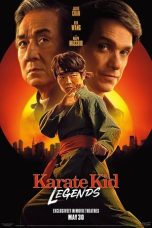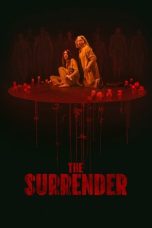Tokyo Story (1953) – Yasujirō Ozu’s Timeless Masterpiece of Family and Aging
Yasujirō Ozu’s “Tokyo Story,” released in 1953, is a seminal work in the canon of world cinema, renowned for its profound exploration of family dynamics, aging, and the passage of time. This Japanese classic is celebrated for its subtle yet impactful storytelling, meticulous craftsmanship, and deep emotional resonance. “Tokyo Story” remains a touchstone for both its narrative simplicity and its poignant reflection on human relationships.
Plot Summary
“Tokyo Story” follows the story of an elderly couple, Shūkichi (Chieko Higashiyama) and Tomi Hirayama (Sōsuke Nakagawa), who travel from their rural home in Hiroshima to Tokyo to visit their grown children. Their visit is marked by a sense of detachment and neglect as their children, now busy with their own lives, barely find time to spend with them. The couple’s journey highlights the generational and cultural gaps between them and their children, culminating in a deeper examination of familial responsibility and the inevitability of change.
The film’s narrative unfolds through a series of understated yet poignant interactions, capturing the subtle tensions and unspoken emotions within the family. The story reaches its emotional peak with the death of Tomi, which prompts a reflective reassessment of family bonds and the significance of love and duty.
Cinematography and Direction
Yasujirō Ozu’s direction in “Tokyo Story” is marked by a distinctive and minimalist style. His use of low-angle shots and static camera positions creates a sense of intimacy and stillness, allowing the emotional weight of the scenes to resonate deeply with the audience. Ozu’s meticulous attention to detail in framing and composition, coupled with his use of naturalistic dialogue and understated performances, enhances the film’s reflective and contemplative tone. The film’s pacing is deliberate, allowing the audience to fully engage with the characters and their emotional journeys.
Performances
The performances in “Tokyo Story” are marked by their subtlety and depth. Chieko Higashiyama and Sōsuke Nakagawa deliver poignant portrayals of the elderly couple, capturing the quiet dignity and vulnerability of their characters. The supporting cast, including Setsuko Hara as their daughter-in-law Noriko and Masao Nakamura as their son Koichi, contribute significantly to the film’s emotional impact. Hara’s performance, in particular, stands out for its nuanced portrayal of a character who grapples with her own sense of responsibility and guilt.
Themes and Symbolism
“Tokyo Story” explores themes of family, aging, and the passage of time with remarkable sensitivity. The film examines the changing dynamics between generations and the impact of modernity on traditional family structures. Ozu’s portrayal of aging and familial relationships is both compassionate and unflinching, highlighting the universal experience of growing older and the often-unspoken sacrifices made by parents for their children. The film’s use of simple, everyday moments as symbols of deeper emotional truths underscores its profound and enduring relevance.
Streaming and Rental/Purchase Options
For viewers in America, “Tokyo Story” is available for streaming on the Criterion Channel, which offers a curated selection of classic and influential films. Additionally, the film is available for rent or purchase on platforms such as Amazon Prime Video, Apple iTunes, Google Play Movies, and Vudu. These options provide flexibility for audiences to experience this cinematic masterpiece through their preferred viewing methods.
Conclusion
“Tokyo Story” remains a timeless and influential film that continues to resonate with audiences through its profound exploration of family and aging. Yasujirō Ozu’s masterful direction, combined with the exceptional performances and meticulous craftsmanship, makes this film a landmark in world cinema. Whether you are a fan of classic Japanese cinema or interested in exploring the themes of family and human connection, “Tokyo Story” is a must-watch for its emotional depth and enduring significance.
- Tokyo Story 1953 review
- Yasujirō Ozu film
- Classic Japanese cinema
- Family dynamics films
- Streaming Tokyo Story Criterion Channel
- Watch Tokyo Story online
- Ozu’s masterpiece

















